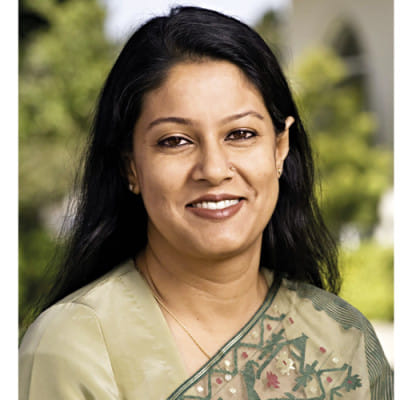‘Rural women should take up the protection of environment as a political agenda’

The Daily Star (TDS): This year's theme is "Gender equality today for a sustainable tomorrow". What's the connection between gender equality and sustainability?
Syeda Rizwana Hasan: It is both an issue of equality and equity. It is an equity issue because women in almost every society remain backward. There needs to be positive discrimination to bring them forward in leadership, decision making, management and resource ownership.
The connection between gender equality and sustainability stems from the same factors that lead to both gender injustice and environmental injustice.
TDS: Women are said to be worse affected than men during a disaster. Why is it so?
Syeda Rizwana Hasan: When there are disasters in the coastal area, families are forced to take shelter away from the embankments where they live. However, after a few months, when the support and relief from the government or NGOs stop, men have to go and look for jobs in other areas, as their own area remain inundated. This makes the women even more vulnerable, lacking the safety a male-dominated household provides them in rural areas.
Simultaneously, women in coastal areas are also responsible for collecting water for their families. They have to walk 2-3 kilometres every day for this purpose. On top of this, salinity intrusion forces them to drink saline water. As a consequence, pregnant women in coastal areas often suffer from eclampsia. Such natural disasters also ruin the livelihoods of women relying on agriculture and livestock.
TDS: What is the current state of the policies in terms of gender equality and what needs to be changed?
Syeda Rizwana Hasan: We do have laws and policies that try to address gender disparity and promote gender equality. The government's education policy is very supportive of female education. Activities in the health sector have helped decrease the maternity-related death of women.
However, if you look at the number of women involved in decision making in the government, the picture is different. While the 50 reserved seats for women is one side of the coin, we also have to see the number of women nominated by political parties to contest elections. There is a clear disparity here.
Simultaneously, gender-based violence (GBV) is also on the rise. Despite having clear laws against GBV, it is not being addressed. We have also seen new forms of harassment against women, like cyber-bullying. I have been subjected to cyber-bullying myself. GBV, cyber-bullying and lack of representation in decision making are areas where we have not made notable improvements.
Even today, we use religion against women. We need to fight the fundamentalist idea that women cannot get an equal share of wealth and property as a man. Even other Islamic countries have amended their laws to give women access to equal inheritance, why can't we?
The evidence act must also be changed to ensure that the judicial process for rape victims is not intimidating. The British-era evidence law must be changed as it allows the police investigation process to be insensitive towards victims.
TDS: How can young women, who join fields such as environmental conservation and disaster risk management, be empowered?
Syeda Rizwana Hasan: When we started our activism, we did not have many figures to follow. So, we fought the battles. This generation will have many idols from different sectors from whom they will be able to learn. However, each generation has its set of challenges. That is why women need to be focused and persistent. If you want to fight a battle without a solid knowledge base and practical experience, you will be defeated very soon.
TDS: How can we encourage women in rural areas and those working at the grassroots to contribute to climate protection and ensure sustainability in the process?
Syeda Rizwana Hasan: In a rural setting, nature brings you your livelihood. If nature is impacted, then you notice it almost immediately. Women in the rural areas should be recording all the negative changes that are happening around them and take up the protection of the environment as a political agenda. It is crucial to take it as a political agenda, as they have to challenge the activities that are negatively impacting their surroundings.
They must articulate their grievances and link them to their right to life and livelihood, and start negotiating to prevent these negative changes from continuing to take place. If that requires questioning a particular development project, then they have no other option than to be brave enough to unite against it.
The interview was taken by Aaqib Hasib

 For all latest news, follow The Daily Star's Google News channel.
For all latest news, follow The Daily Star's Google News channel. 



Comments